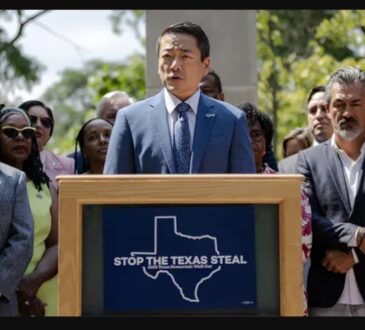
The same harmful behaviors that can mess up families can also mess up entire countries.
The Trump administration planned a military parade on June 14 to mark both the Army’s 250th birthday and Trump’s 79th. It’s not just a party it’s a show of power that fits the first sign of narcissism: thinking you’re more important than everyone else.
While I can’t officially diagnose anyone from afar, people in power, especially politicians, often show signs of narcissism. When a narcissist leads, it can twist the truth, destroy trust, and shake the foundations of government. Understanding these patterns can help protect both people and democracy.
As a therapist, I see these patterns every day. Narcissists often bring denial, blame-shifting, attacks, and emotional chaos and this happens in politics just like it does in families.
For example, I had a patient whose brother abused their elderly mom. When she tried to speak up, he accused her of being unstable to protect his image. Her family told her to stay quiet, but with support, she held her ground. It was tough, but eventually, her brother was removed from their mom’s home.
These same tactics appear in politics. Narcissistic leaders like to confuse people by constantly changing their stance. They keep everyone off-balance, making it hard to know what’s really going on. That confusion helps them keep control. But knowing what’s happening recognizing the manipulation — helps people protect themselves.
Another patient had a boyfriend who always changed the rules. Once she met his demands, he’d move the goalposts. Politicians do this too changing policies or positions to confuse the public and keep control.
Some people think this is just bad planning, but it’s often a deeper tactic. Narcissists keep others guessing to stay in charge. It’s not always intentional, but it works.
Narcissists want emotional control. They need constant praise and will do anything to keep their image intact even if it hurts others. They may not all be abusive, but the more extreme ones use confusion, guilt, and emotional manipulation to get what they want and keep people tied to them.
One of their most effective tools is creating constant crises. These fake emergencies distract from real issues and keep everyone in survival mode reacting instead of thinking clearly. In families, this might be a sudden meltdown or a made-up emergency. In politics, it can be legal threats, shocking announcements, or attention-grabbing stunts.
The human nervous system can only take so much stress. We might fight, shut down, people-please, or freeze. But healing starts when we recognize these reactions and learn how to act calmly and with purpose again.
In therapy, I help people see that their constant anxiety isn’t random it’s a reaction to long-term manipulation. The same thing happens in a society led by a narcissist. This isn’t just about politics it’s about collective trauma.
One woman I work with deals with her abusive mom’s texts full of guilt-tripping, drama, and demands by using flashcards that label each manipulation tactic. Naming the behaviors helps her stay calm and in control. This kind of emotional awareness is how we build resilience.
I’ve seen many people slowly free themselves from narcissistic control. It starts with grieving what can’t be changed and focusing on what they *can* do setting boundaries, reclaiming their time and attention, and refusing to let the narcissist pull their strings.
These same dynamics show up in big organizations too law firms, universities, governments. When people tiptoe around a powerful, controlling figure, fear takes over, and values get tossed aside.
Healing starts when people stop playing along. Instead of wasting energy on shock or arguments, we need to name the behavior, speak out, find support, and let go of what we can’t fix. A lot of the time, the anger or confusion we feel is really grief for a relationship, or for the state of our society.
Think of *The Wizard of Oz* when Dorothy pulls back the curtain and sees it’s just a man with a microphone, the illusion falls apart. That same realization happens in therapy. Once people see the manipulation clearly, the spell breaks.
So what can we do once we see through the illusion?
First, stop feeding it. Rushing to fix everything often just gives narcissists more control. Sometimes, not reacting is the smartest move. That’s called “gray rocking” being calm and boring so the narcissist loses interest. It’s hard, but effective.
Next, set boundaries. In therapy, this means calmly repeating limits and building a support system. In politics, it means rebuilding safeguards like fair courts, checks on power, and free speech. Trump’s actions revealed weak spots in our system, and we need to fix them.
We also need to build resilience. Narcissists thrive on chaos and isolation. To fight back, we need rest, community, and care. That’s not weakness it’s how we stay strong and connected.
Most importantly, we need to stay focused on the long-term. Narcissists love chaos, but real change takes patience, clarity, and unity. We don’t beat toxic behavior by copying it — we beat it by recognizing it, grieving the harm, refusing to enable it, and moving forward with purpose. Whether in therapy or democracy, healing starts when we stop reacting and remember who we are.




